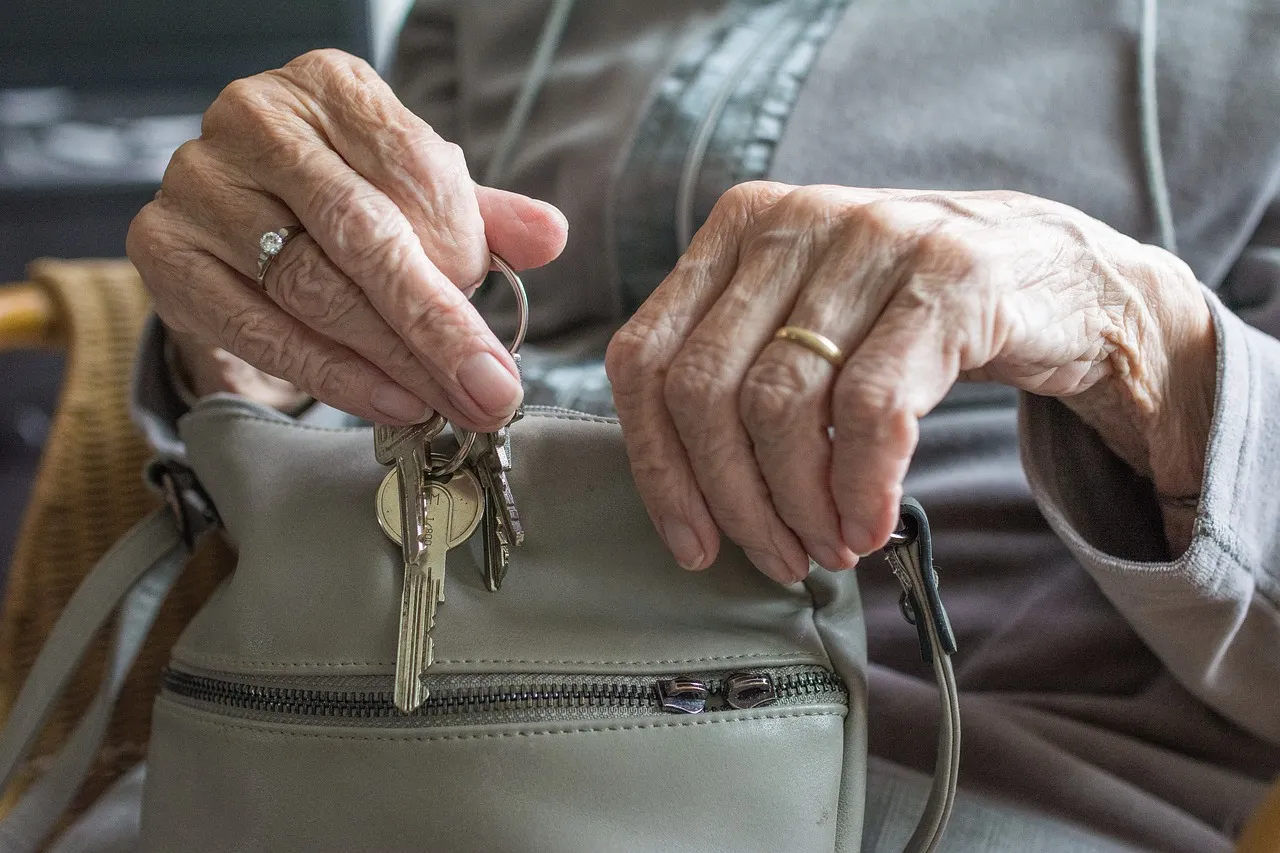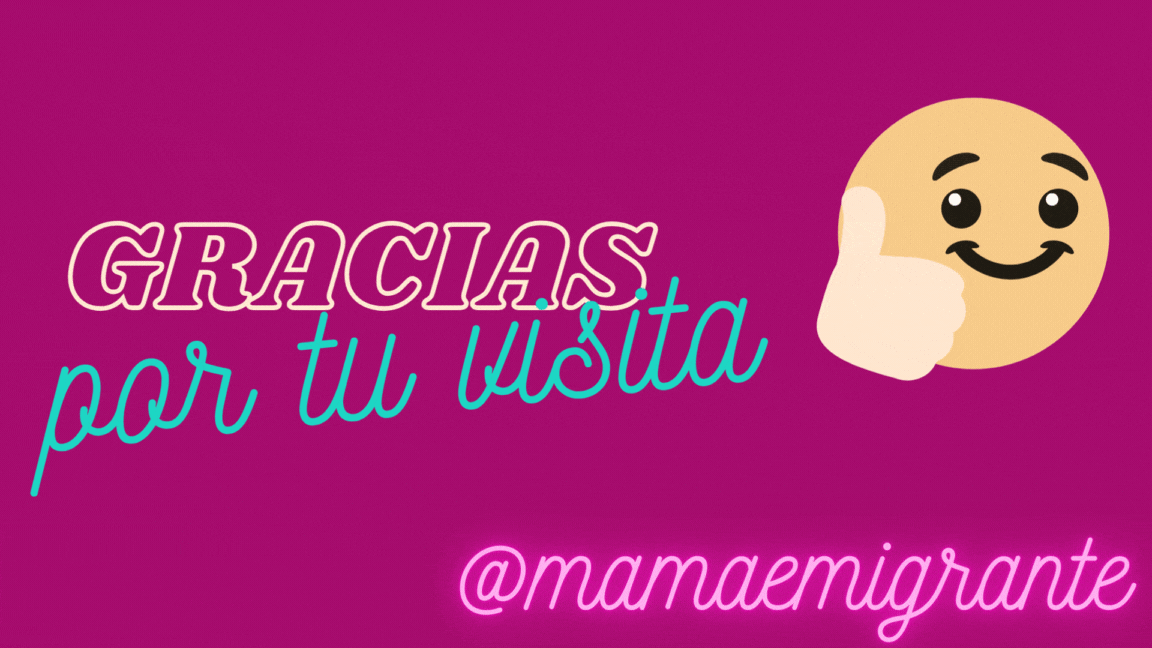
When we are young, we never imagine that at some point we will be grandmothers. I imagine that mine were no exception. However, during the course of life, they accumulated experiences that later, in their golden years, did not hesitate to share with the next generations, especially with those who descended from their love and their womb.
My closest contact was with Luisa, my mother's mother, as we always went to visit her during vacations and spend a couple of months sharing with her and our cousins. I remember the afternoons with snacks she made us with almost anything she found in the pantry, fridge, or from the fruits of the backyard.
She was a very loving woman, although my mother says that in her childhood she was the opposite with her own children. Hence, the saying that mothers raise and grandmothers spoil, as she was strict and assertive with them in some circumstances, but who wouldn't be if having 4 daughters and 1 son, she didn't want them to go through the same hardships she had to face since she was young?
Grandmother Luisa was orphaned at 4 years old, her mother, Isabel, I don't know how she passed away, and she was left in the care of her father, who didn't even legally acknowledge her, so her last name was Vitriaga, like her mother's. Grandmother would tell stories about how at that age, she had to help in the kitchen, run errands, and clean.
She was taken out of school because, being epileptic, the teachers didn't want to be responsible for her care. So they told the great-grandfather to not bring her anymore. But grandmother wasn't taken to a doctor, her diagnosis was made when she was already a woman.
However, that didn't stop her spirits. When she was around 10 years old, her father got together with what would be her stepmother, and shortly after her first sister was born, and two years later, the second one. She had to take care of both of them as a teenager, so the dolls she didn't have as a child arrived during her adolescence.

When she came of age, she had to take care of herself, so she started working as a cleaning lady in family homes. Everything she learned in her childhood gave her support, despite her lack of education in reading and writing. With this, she managed to cover her expenses, besides meeting people very different from those in her neighborhood.
It was during those days that she met Marcelina, a girl who was in charge of the kitchen in one of those houses, who, when Luisa was left homeless, gave her shelter in her own home. Thanks to her, she met my grandfather Juan Bautista, a worker at the municipal sawmill, with whom she later went to live.
Grandfather built her a little house with wattle and daub, a mixture of clay, earth, and sand, that still stands almost 80 years later, and is the home of one of my aunts. In that house are the most beautiful memories of my childhood.
Despite her epilepsy, she had 5 children, without any losses, and the most incredible thing is that only the first one (my mother) was born in the hospital, all the others were born at home, assisted by a midwife. None of her children inherited that condition.

Grandmother was the most noble being I had ever known, it was like being with another child! She didn't see the malice in people, and always sought to help others, even if they weren't family. I remember that from her gifts, she always ended up sharing them, as she felt embarrassed to receive without giving. So if she was gifted a comb and brush set, she would give away one of the two.
The crumpled bills wrapped in a handkerchief and carefully stored in her brassiere were a classic. Sometimes she would send us to turn around to take them out, although we already knew where they were, and after that, she would send us to the store to buy her only vice: a box of chimó, which is a tobacco paste that she used to chew since she was little.
The grandchildren grew up, and we had children, many of whom also enjoyed her company and affection. The last of them was my eldest son, who at one year old, imitated my mother and one of my aunts in the help our grandmother (his great-grandmother) needed to do mobility exercises after an Ischemic Stroke she suffered at the age of 91.
The following year, our grandmother passed away while sleeping, just a month before my little one turned two. But she left us such pleasant moments spent together and so many stories of resilience, that still, 14 years later, they are an inspiration to me.

Cuando estamos pequeñas, nunca imaginamos que en algún momento seremos abuelas. Me imagino que las mías no fueron la excepción. Sin embargo, en el transcurso de la vida fueron acumulando vivencias que ya luego, en sus años dorados no escatimaron en compartir con las generaciones siguientes, sobre todo, con aquellos que descendimos de su amor y su vientre.
Mi contacto mayor fue con Luisa, la mamá de mi madre, pues siempre en vacaciones íbamos a visitarla y estar un par de meses compartiendo con ella y los primos. De ella recuerdo las tardes con meriendas que nos hacía casi con cualquier cosa que encontraba en la despensa, la heladera o de los frutos del patio.
Era una mujer demasiado cariñosa, aunque mi mamá cuenta que en su infancia era todo lo contrario con sus hijos. De ahí que se cumple que las madres crían y las abuelas malcrían, pues con ellos era tajante e impositiva en algunas circunstancias, pero ¿quien no lo sería si teníendo 4 hijas y 1 varón, no quería que pasaran por las mismas penurias que tuvo que enfrentar ella desde pequeña.?
La abuela Luisa quedó huérfana a los 4 años, su madre, Isabel, no sé de que falleció, y quedó a cargo de su padre, quien ni siquiera la reconoció legalmente, por lo que su apellido era Vitriaga, como el de su mamá. Contaba la abuela que a esa edad, le tocaba ayudar en la cocina, hacer los mandados y limpiar.
De la escuela la sacaron, pues al ser epileptica, las maestras no querían hacerse responsables de su cuidado. Así que al bisabuelo le dijeron que mejor no la llevara más. Pero la abuela no fue llevada al médico, su diagnóstico fue hecho cuando ya era mujer.
Sin embargo, eso no frenó los ánimos de ella. Cuando tenía unos 10 años, su padre se junta con quien sería su madrastra, y al poco tiempo nace su primera hermana, luego de dos años, la segunda. De ambas tuvo que hacerse cargo siendo adolescente, así que las muñecas que no tuvo de niña, llegaron en la adolescencia.

Con la mayoría de edad, tocaba valerse por si misma, así que empezó a trabajar de señora de limpieza en casas de familia. Todo lo aprendido en la niñez, le dio un soporte, pese a su ignorancia en las letras. Con esto, lograba cubrir sus gastos, además de conocer gente muy distinta a la que vivía en su zona.
Fue en esos días que conoció a Marcelina, una chica que se encargaba de la cocina en una de esas casas, quien al momento de que Luisa quedara sin un techo, le dio cobijo en el suyo. Gracias a ella, conoció a mi abuelo Juan Bautista, un obrero del aserradero municipal, con quien luego se fuera a vivir.
El abuelo le construyó una casita con bahareque, una mezcla de arcilla, tierra y arena, que todavía, casi 80 años después, permanece de pie y es el hogar de una de mis tías. En esa casa están los recuerdos más lindos de mi infancia.
Pese a su condición de epiléptica, tuvo 5 hijos, sin ninguna pérdida, y lo más increíble, es que solo la primera (mi mamá) nació en el hospital, todos los demás fueron en casa, asistida por una partera. Ninguno de sus hijos heredó esa condición.

La abuela era el ser más noble que yo había conocido, era como estar con una niña más! Ella no veía la malicia de la gente, y siempre buscaba ayudar a otros, aunque no fueran su familia. Recuerdo que de sus regalos, ella siempre terminaba compartiéndolos, pues le daba vergüenza recibir sin tener que dar. Así que si le regalaban un juego de peine y cepillo, ella regalaba uno de los dos.
Los billetitos arrugados envueltos en un pañuelo y guardados celosamente en el brassier, eran un clásico. A veces nos mandaba a voltearnos para sacarlos, aunque ya sabíamos donde estaban, y luego de ello nos mandaba a comprar en la bodega su único vicio: una cajita con chimó que es una pasta de tabaco que ella solía mascar desde pequeña.
Los nietos crecimos, y tuvimos hijos, muchos de ellos gozaron también de su compañía y cariño. El último de ellos fue mi hijo mayor, quien con un año, imitaba a mi madre y una de mis tías, en la ayuda que necesitaba la abuela (su bisabuela) para hacer los ejercicios de movilidad luego de un ACV Isquémico que le dió a sus 91 años.
Al año siguiente, la abuela se nos fue mientras dormía, justo un mes antes de que mi pequeño cumpliera dos añitos. Pero nos dejó tan gratos momentos vividos a su lado y tantas historias de resiliencia, que todavía, 14 años después, son inspiración para mi.
Foto/Photo by: @mamaemigrante and Sabine Van Erp & Congerdesign (Pixabay)
Edición/Edited by @mamaemigrante using canva
Translated and formatted with Hive Translator by @noakmilo.
